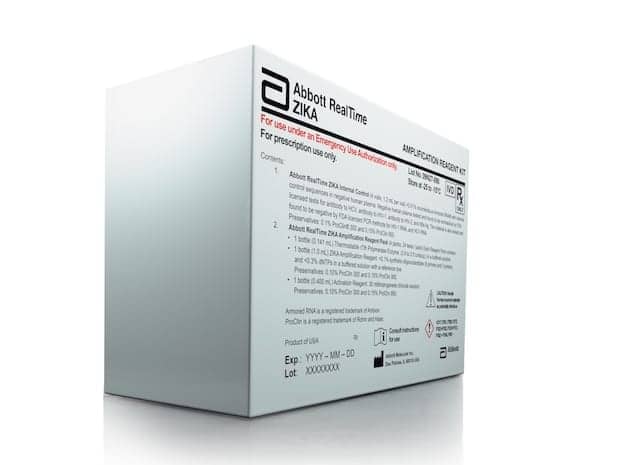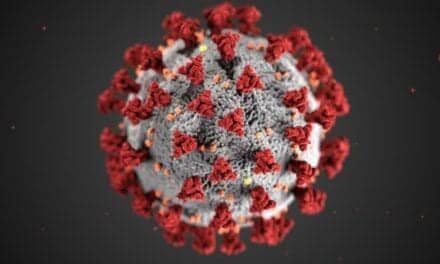FDA has granted emergency use authorization to the Abbott RealTime Zika test from Abbott, Abbott Park, Ill, to detect Zika virus in whole blood when collected alongside a patient-matched serum or plasma sample.
According to the company, this is the first molecular test made by a commercial manufacturer to receive FDA authorization for detecting Zika virus in whole blood samples. The innovation is significant, because recent research suggests that Zika virus can be detected in whole blood for a longer period (up to 2 months) and at higher levels versus testing with serum and urine sample types.1–3
“Diagnosing a Zika infection can be challenging, especially since people might not have any symptoms or only have mild symptoms that last a few days,” says John Hackett, PhD, divisional vice president of applied research and technology for the diagnostic products unit at Abbott. “Abbott’s molecular test may provide the ability to identify the active virus over a longer time period with whole blood, and could provide a more accurate diagnosis. Our test can also distinguish Zika from other viruses such as dengue or chikungunya, which helps doctors make informed diagnoses to help people get back to better health.”
The Abbott RealTime Zika test is designed for use on the m2000 RealTime system, the company’s molecular diagnostics instrument used in hospital and reference labs in the United States and around the world. Providing results within 5 to 7 hours, the test is highly sensitive to detect whether an individual is infected with the Zika virus. It is also automated, enabling people who work in the lab to be more efficient and spend less time preparing and handling samples.
Abbott has several additional research and development projects underway—but not yet FDA approved, cleared, or authorized—to help address testing needs related to the current Zika outbreak.
Current tools for detecting Zika and other tropical diseases are laboratory-based and require reliable power sources. But testing is often needed in remote areas where there are no labs. To address this need for testing in rural and remote areas, the US Defense Advanced Research Projects Agency has awarded a contract to Abbott to develop a testing panel for Zika and multiple tropical fever pathogens for use on a mobile platform.
Another issue is the development of serology tests that do not cross-react with other tropical disease antibodies. Through a grant from the US Agency for International Development, Abbott is exploring the development of a serology test to solve this challenge.
For more information, visit Abbott.
REFERENCES
- Lustig Y, Mendelson E, Paran N, et al. Detection of Zika virus RNA in whole blood of imported Zika virus disease cases up to 2 months after symptom onset, Israel, December 2015 to April 2016. Euro Surveill. 2016;21(26):pii=30269; doi: doi.org/10.2807/1560-7917.ES.2016.21.26.30269.
- Murray KO, Gorchakov R, Carlson AR, et al. Prolonged detection of Zika virus in vaginal secretions and whole blood. Emerg Infect Dis. 2017;23(1):99–101; doi: doi.org/10.3201/eid2301.161394.
- Most Zika molecular tests currently available use plasma, serum, or urine samples only, except for the Centers for Disease Control and Prevention’s Trioplex Real-Time RT-PCR assay, which can also use whole blood [online]. US Centers for Disease Control and Prevention: Atlanta, 2017. Available at: fda.gov/downloads/MedicalDevices/Safety/EmergencySituations/UCM491592.pdf. Accessed February 24, 2017.





